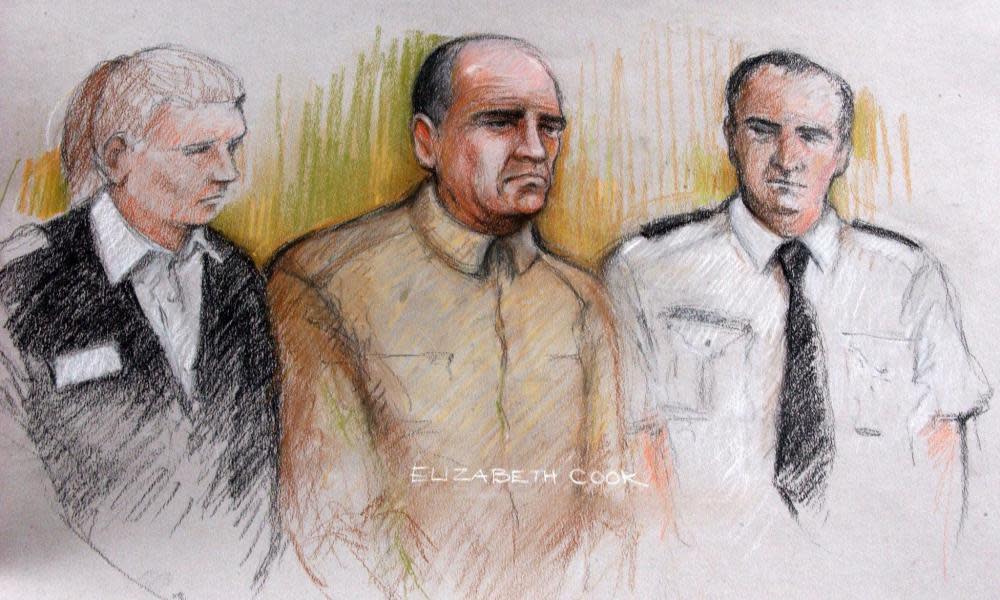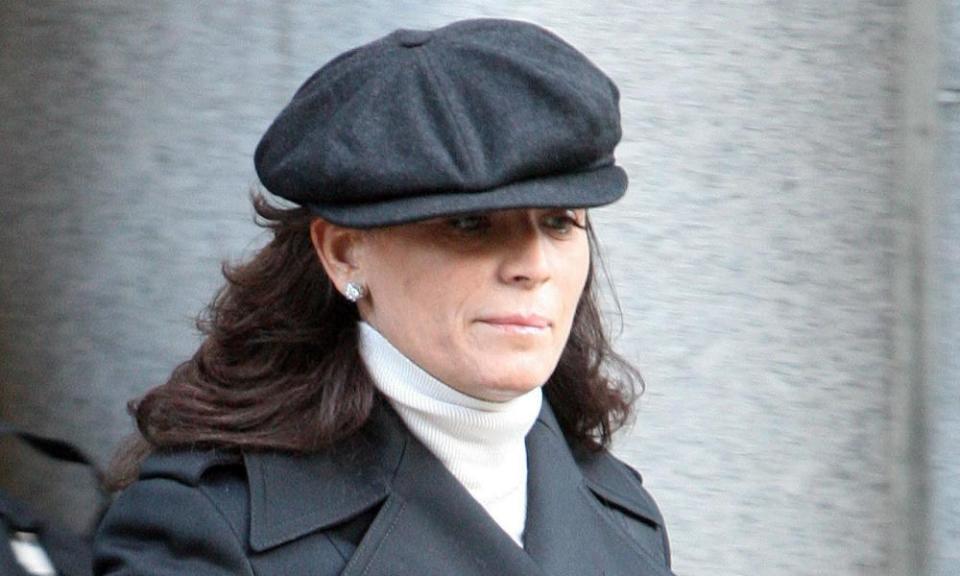Ex-gang boss ordered to pay back £700,000 of criminal earnings

A former gangland boss has been ordered to pay back more than £700,000 of his criminal earnings said to have been concealed through illegal money-laundering.
Terry Adams, the former leader of what has been described as one of the most notorious crime gangs in the UK, lost his claim in the court of appeal that he had insufficient funds to meet the demand.
The court heard that Adams, whose north London gang was known as the Adams family, owed an outstanding £358,562 from the confiscation order. With unpaid interest, the sum now stands at more than £700,000. Interest is charged at an annual rate of 8%. If he fails to make any further repayments he could face up to another four years in prison.
Adams was jailed in 2007 for seven years for money-laundering following a surveillance operation that involved MI5 bugging his home. In 2014, a high court judge, Mrs Justice Nicola Davies, refused his application for a certificate of inadequacy to begin the process of getting a reduction.
On Monday, Lord Justice Longmore, Lord Justice Hamblen and Lord Justice Irwin in the court of appeal upheld the high court decision.
Adams had told the judge he had so little money he felt “like a ponce” because he was living off the earnings of his wife, Ruth, an actor, and denied owning hidden assets that were funding a lavish lifestyle.

The Crown Prosecution Service (CPS) had opposed his application, saying there was a strong case that Adams possessed “substantial undisclosed assets”.
By January 2012, any identified lawful funds from the sale of their former home were exhausted, yet the couple maintained an expensive lifestyle. Adams, it was said, had not provided full and candid disclosure.
During the high court hearing it was alleged that the pair spent £15,000 on flights, hotels and entertainment between August 2009 and September 2013, including a massage at the Dorchester hotel, a visit to the Ivy restaurant and 13 meals at Browns restaurant in Mayfair.
Adams, however, has described as “laughable” CPS claims that they had an annual expenditure of £97,000. He denied he was using his wife, family and associates to create a sham income and loans to pay for visits to the opera and top restaurants, spa memberships and treatment at private clinics.
His counsel, Ivan Krolick, told the court of appeal that the high court judge had got it wrong against the weight of the evidence, while Kennedy Talbot QC, for the CPS, said her decision was fully justified.
The three appeal court judges concluded that the judge’s finding on the evidence that Adams had an undisclosed reserve of funds involved no arguable error of law and was by no means unreasonable. They rejected criticisms made of the judge’s treatment of the evidence.
“The finding that Mr Adams had not discharged the burden of proof upon him was neither unreasonable nor against the weight of the evidence,” said Hamblen.
Nick Price, head of the proceeds of crime section at the CPS, said: “Criminals will go to great lengths in an attempt to preserve the proceeds of their crimes and Terry Adams is no exception. We have presented our case carefully and thoroughly, and I am pleased that the court of appeal has agreed that he is able to pay off this debt.
“Attempting to hide assets and claim poverty is not a new tactic. The CPS are used to dealing with such claims and will deal with them robustly. Depriving criminals of their wealth disrupts organised crime and the CPS works closely with investigators to ensure that we can take back assets from those who look to benefit from crime.”

 Yahoo News
Yahoo News 
